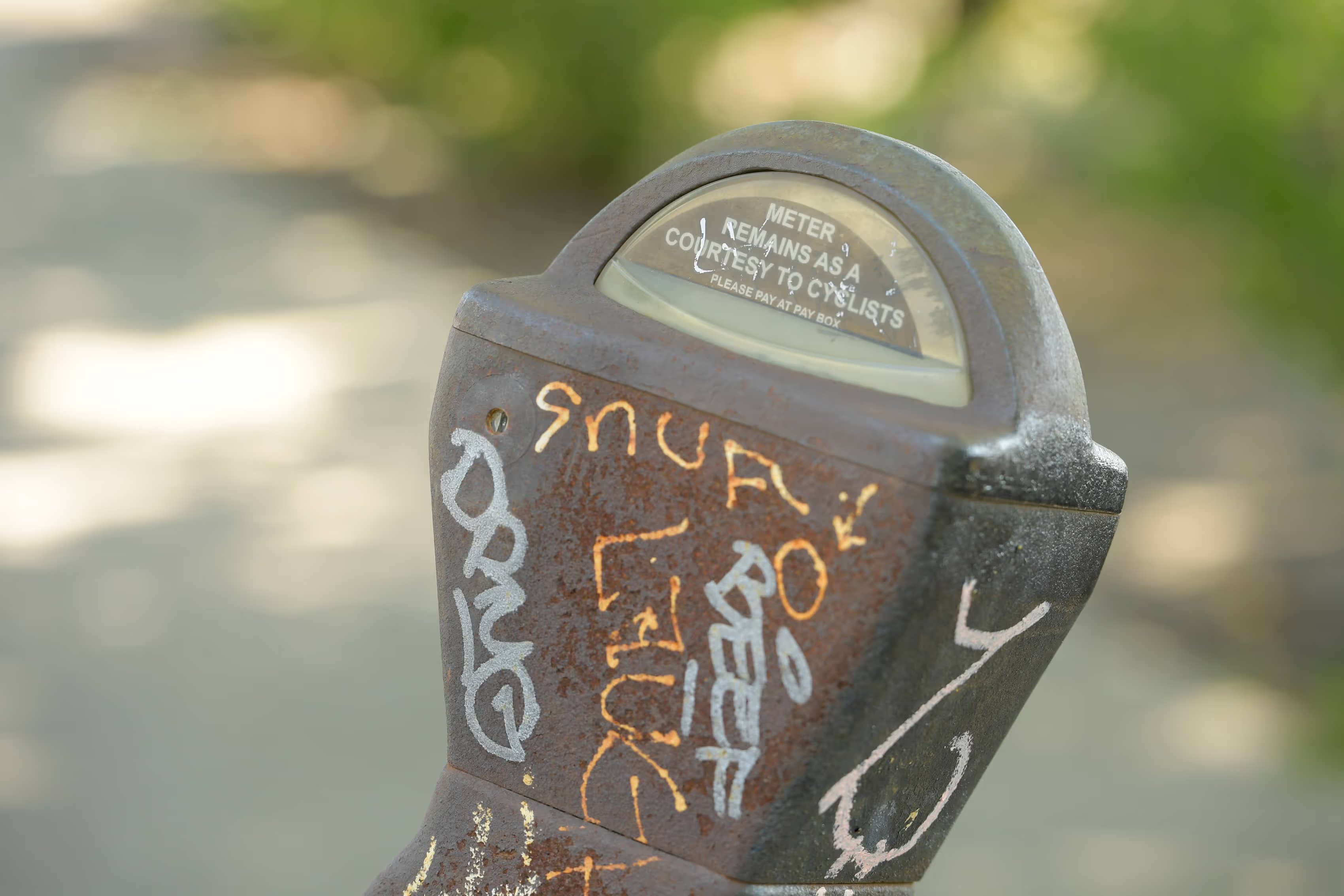Chicago’s Parking Meter Deal Already Has Transit Reform in a Chokehold, the City Shouldn’t Make It Worse

The Daley-era parking meter deal has wrought disaster for Chicago, but the Windy City does have some options
For the first time in who-knows-how-long, there were clean and reliable transportation options available during the Democratic National Convention. Having seen what’s possible, it’s no surprise residents, especially young voters, are calling for this to become the new normal.
Growing discontent with the Chicago Transit Authority’s state of upheaval, wanting better access to public transportation, and more designated bike and bus lanes is something nearly every Chicagoan seems to be experiencing.
But, what’s stopping Chicago from implementing new transit policies? The infamous 75-year parking meter deal. Though it was designed to give the city a cash infusion, an unintended consequence of the deal is a long-term chokehold on environmental and transit reform in Chicago. Fifteen years since it took effect, the investors Morgan Stanley and foreign entities Abu Dhabi and Allianz that make up Chicago Parking Meters LLC have long recovered their $1 billion investment and made a profit of over half a billion dollars. All of this has come at the expense of young voters’ desires.
Terms of the deal mean the city is obligated to maintain 30,000 meters. If Chicago creates a new bike or bus lane, every parking spot removed from use needs to be installed in a different location of equal value. Otherwise, the city must pay the difference.
If the city cuts parking fees, reduces the number of spaces or the hours of operation, or simply fails to keep up with inflation, it’s obliged to pay the company for “lost” revenue. Events that remove parking spots, such as street closures for dining, parades and festivals including Lollapalooza, actually cost the city.
The city even has to pay for maintenance, which has cost over $150 million so far.
The parking meter agreement has been catastrophic for the Windy City. Chicago is left hand-cuffed to parking in some form or another. Beyond the physical restrictions of the deal, it’s worsened Chicago’s finances and placed a strain on Chicago's already overburdened taxpayers.
Chicago found a way to make-up for lost revenue — parking tickets and automated enforcement such as speed and red-light cameras. Obviously, the city is eager to ticket for parking violations when they retain 100 percent of that kind of revenue. The 2024 city budget relies on $348 million in fines from parking, speed cameras, red-light cameras, and other traffic tickets.
These types of regressive fines disproportionately harm members of black and low-income communities, which experience the largest gaps in public transportation options. Chicago should be trying to make up for its lack of available public transportation options in these areas, not overburden its residents with fees.
Instead, residents are nickel-and-dimed to offset the financial burden of the deal.
Just this month, the city added hundreds of metered parking spots in the West Loop to help fill the projected deficit of $986 million in 2025. Mayor Brandon Johnson, members of the City Council, and their office of financial analysis have also outlined plans for a “congestion tax” and reduction of the citywide speed limit.
Disguised as pro-transit initiatives, they will ultimately be cash-grabs for the city. As it stands now, lowering the speed limit will drastically increase the number of speed camera tickets issued — which studies show have limited to no effect on public safety. A congestion tax will add to Chicago’s army of automated enforcers and lock Chicago into years of car-focused revenue.
These initiatives don’t actually improve Chicago's public transit options — they just shift more of the cost onto residents.
The deal already condemns future generations to 60 more years of parking requirements, 60 more years of car-based infrastructure and 60 more years of unnecessarily heavy traffic — city leaders shouldn’t make it worse.
Is there any hope?
Citizens could consider legal challenges to void the contract as being “manifestly against public policy.” Early versions of this argument lacked substance, but every year the impact to the city’s finances and transportation policies are increasingly evident. The once speculative public harm is now backed by millions of wasted tax dollars.
Until then, the city can enact meaningful transit-forward reforms. Start with changing CTA leadership and cutting frivolous spending and focus on restaffing vacant operator positions, addressing concerns about rising crime, and expanding discount options to encourage ridership. Additionally, Chicagoans should support a pro-transit Lake Shore Drive renovation. The current plan prioritizes cars and leaves out bus lanes.
It’s time city leaders embraced meaningful transit reform instead of more taxes and fees. The deal is costing us too much already.
Chicago deserves better.
Micky Horstman is the communications associate for the Illinois Policy Institute and a writer for Young Voices.
